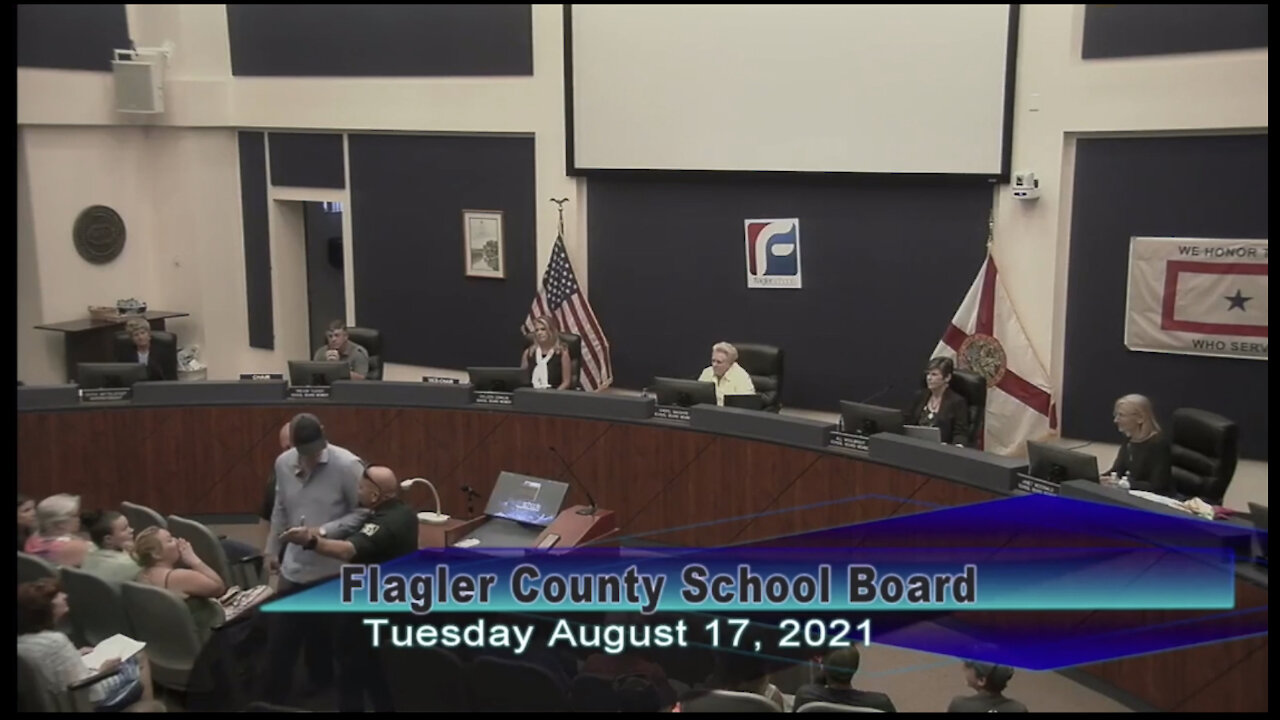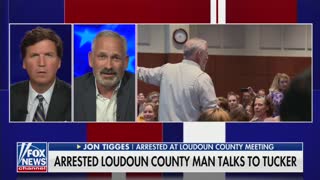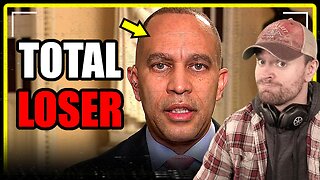Premium Only Content

Father Removed by Sheriff After Triggering School Board Attorney With U.S. Supreme Court Case Law
My husband and father to our son who was greatly mistreated by this school system due to the vaccine discrimination and medical Coercion against his religious exemption was forcibly removed by Sheriffs from the school board podium after offending the school board attorney and the liberal members of the school board. Clearly communists don’t like our U.S. Constitution, Supreme Court Authority or First Amendment Rights.
The general proposition that freedom of expression upon public questions is secured by the First Amendment has long been settled by our decisions. The constitutional safeguard, we have said, 'was fashioned to assure unfettered interchange of ideas for the bringing about of political and social changes desired by the people.' Roth v. United States, 354 U.S. 476, 484, 77 S.Ct. 1304, 1308, 1 L.Ed.2d 1498. 'The maintenance of the opportunity for free political discussion to the end that government may be responsive to the will of the people and that changes may be obtained by lawful means, an opportunity essential to the security of the Republic, is a fundamental principle of our constitutional system.' Stromberg v. California, 283 U.S. 359, 369, 51 S.Ct. 532, 536, 75 L.Ed. 1117. '(I)t is a prized American privilege to speak one's mind, although not always with perfect good taste, on all public institutions,' Bridges v. California, 314 U.S. 252, 270, 62 S.Ct. 190, 197, 86 L.Ed. 192, and this opportunity is to be afforded for 'vigorous advocacy' no less than 'abstract discussion.' N.A.A.C.P. v. Button, 371 U.S. 415, 429, 83 S.Ct. 328, 9 L.Ed.2d 405. The First Amendment, said Judge Learned Hand, 'presupposes that right conclusions are more likely to be gathered out of a multitude of tongues, than through any kind of authoritative selection. To many this is, and always will be, folly; but we have staked upon it our all.' United States v. Associated Press, 52 F.Supp. 362, 372 (D.C.S.D.N.Y.1943). Mr. Justice Brandeis, in his concurring opinion in Whitney v. California, 274 U.S. 357, 375 376, 47 S.Ct. 641, 648, 71 L.Ed. 1095, gave the principle its classic formulation:
'Those who won our independence believed * * * that public discussion is a political duty; and that this should be a fundamental principle of the American government. They recognized the risks to which all human institutions are subject. But they knew that order cannot be secured merely through fear of punishment for its infraction; that it is hazardous to discourage thought, hope and imagination; that fear breeds repression; that repression breeds hate; that hate menaces stable government; that the path of safety lies in the opportunity to discuss freely supposed grievances and proposed remedies; and that the fitting remedy for evil counsels is good ones. Believing in the power of reason as applied through public discussion, they eschewed silence coerced by law—the argument of force in its worst form. Recognizing the occasional tyrannies of governing majorities, they amended the Constitution so that free speech and assembly should be guaranteed.'
Thus we consider this case against the background of a profound national commitment to the principle that debate on public issues should be uninhibited, robust, and wide-open, and that it may well include vehement, caustic, and sometimes unpleasantly sharp attacks on government and public officials. See Terminiello v. Chicago, 337 U.S. 1, 4, 69 S.Ct. 894, 93 L.Ed. 1131; De Jonge v. Oregon, 299 U.S. 353, 365, 57 S.Ct. 255, 81 L.Ed. 278.
-
 59:21
59:21
American Center for Law and Justice
4 years agoChristian School Choice Heads To Supreme Court
6364 -
 2:25
2:25
BonginoReport
3 years agoSchool Board Votes to Ban CRT After Epic Speech From Black Father
268K210 -
 4:16
4:16
Brigitte Gabriel
4 years ago $53.31 earnedWATCH: Father Arrested at Virginia School Board Meeting Speaks Out with Tucker Carlson
11.7K25 -
 3:00
3:00
The Post Millennial Live
3 years agoFather speaks out at the Natomas Unified School District school board meeting
14.6K7 -
 4:22:34
4:22:34
Akademiks
8 hours agoNicki Minaj vs Dez Bryant. Trump Calls out Charlamagne. Diddy Denied Bail Again! ICEMAN soon?
57.2K3 -
 3:16:28
3:16:28
Nerdrotic
10 hours ago $9.32 earnedNerdrotic at Night 504
82.9K3 -
 8:20:30
8:20:30
Dr Disrespect
17 hours ago🔴LIVE - DR DISRESPECT - WARZONE - RANDOMLY GENERATED LOADOUTS EVENT
232K9 -
 1:36:07
1:36:07
Glenn Greenwald
12 hours agoTrump Admin Unleashes More Policies That Prioritize Israel Over American Citizens; The Smear Campaign Against Gaza Aid Whistleblower with Journalist Mel Witte | SYSTEM UPDATE #497
146K193 -
 58:14
58:14
MattMorseTV
10 hours ago $14.81 earned🔴Hakeem just lost EVERYTHING.🔴
84.4K63 -
 9:21:36
9:21:36
Rallied
14 hours ago $3.19 earnedWARZONE CHALLENGES WITH DRDISRESPECT & BOB
86K5